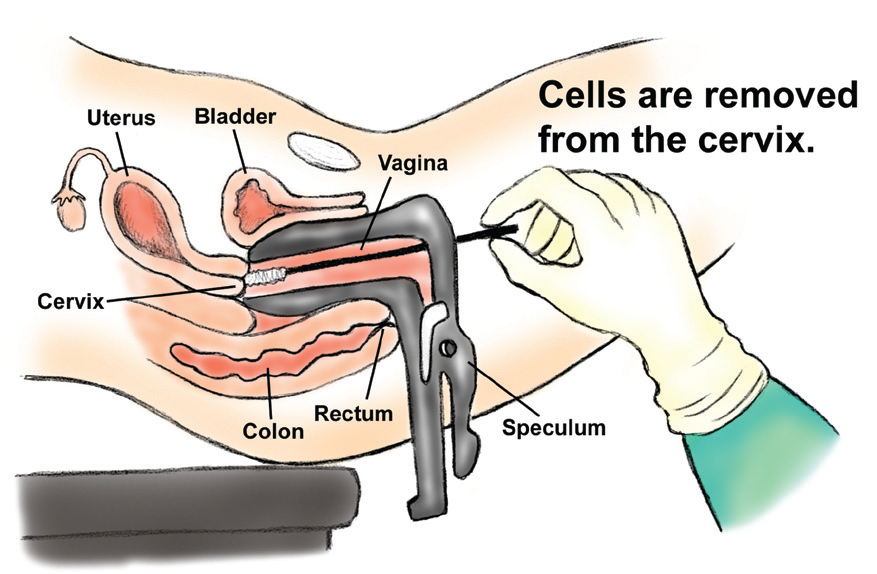Pap Smears: Everything You Need To Know Before Your First Visit
All sexually-active women are advised to get Pap smears done in prevention of cervical cancer.
Cervical cancer is the third most common cancer among women in Malaysia
An estimated 1,682 Malaysian women are diagnosed with cervical cancer every year.
However, cervical cancer is preventable and early stages are treatable.
According to the World Health Organization, almost all cervical cancer cases (99%) are caused by a sexually transmitted virus called the human papillomavirus (HPV).
In other words, if you are not infected with HPV, there are less chances of you developing cervical cancer.
The normal cervix (far left) and different stages of cervical cancer.
Image via American Pregnancy AssociationThe prevention and early detection of HPV is crucial in preventing cervical cancer
The good news is, prevention of both HPV and cervical cancer comes in many forms – you may get the HPV vaccine, go for regular screening (Pap smear), and practise safe sex.
There are two screening tests that can detect early changes in the cervix:
- The Pap smear (or Pap test) that looks for abnormal cell changes in your cervix.
- The HPV test that looks for the virus itself. However, this is not as commonly available and more expensive.
The Ministry of Health (MOH) recommends all women between the ages of 20 and 65 years who are, or have been, sexually active to get a Pap smear at least once every three years.
How to prepare for a Pap smear
To make sure the results of the Pap smear is as accurate as possible, it is recommended that ahead of the test you should avoid:
- Having sex,
- Using tampons,
- Douching, and
- Using vaginal creams, suppositories, medicines, vaginal deodorant sprays, or powders.
Also, try not to schedule your test when you are having your period.
What happens during a Pap smear
It is a simple test to take a sample from your cervix and only requires a few minutes. It is done by women's health specialists called gynaecologists.
When you are ready, you will be asked to undress from the waist down and lie down on an examination bed. If you are uncomfortable, you may ask for a woman chaperone.
The doctor will use a plastic or metal instrument, called a speculum, to widen your vagina. This helps the doctor examine your vagina and cervix for abnormalities, and use a swab to collect a few cells from the cervix. And you're done!
While you get dressed, the doctor will place the sample in a tube and send it to the laboratory to be interpreted.
After the test is done, you will be told how, where, and approximately when you will get the results. Government clinics may take up to three weeks, while private clinics may only take three days and results can be told over the phone.
Important reminders:
- It is normal to feel embarrassed during your first appointment, but there's really no need to be. Your vagina and cervix are parts of your body and it's important to ensure they are healthy!
- Pap smears may be a little uncomfortable, but they should never be painful. You may ask for a smaller speculum size.
- After the test, you may feel mild discomfort or cramping in your lower body, but it should not last longer than a day.
- If you have never had sex, talk to your doctor to help you decide if you want to do the screening in the first place.
- Even if you have not had any sexual activity for a long time, it is still important to go for screening as scheduled.
How often do you need a Pap smear?
Your first two Pap smears are done one year apart. If they are both normal and healthy, then you will only need to go for a Pap smears once every three years after that.
If you did HPV testing along with your Pap smear and both results were normal, you will only need to go for a Pap smear once every five years.
If you have an abnormal result, it means some cell changes were found on your cervix, but it does not necessarily mean you have cervical cancer. Talk with your doctor or nurse.
Where to get Pap smears and how much they cost
You can go to:
- Government hospitals and clinics
- Private hospitals and clinics
- National Population and Family Development Board (LPPKN) clinics
- Non-governmental organisations, such as the National Cancer Society of Malaysia.
Pap smears at MOH hospitals and clinics are essentially free (all outpatient treatments cost RM1). You can also get a Pap smear done at LPPKN clinics for RM20.
Pap smears at private hospitals and clinics cost between RM40 and RM80.
If you have questions, do seek help from a medical professional
The information provided is for educational and communication purposes only and it should not be construed as personal medical advice. Information published in this article is not intended to replace, supplant or augment a consultation with a health professional regarding the reader's own medical care.
Look out for more #sexualhealth stories and tips this month!
From contraceptives to vibrators, and intimacy to abstinence, no topic is off limits. Join us in normalising conversations surrounding sexual health.




